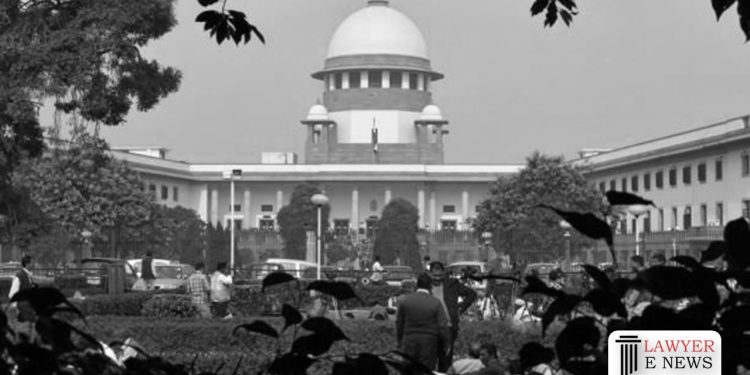Equitable Considerations Cannot Supplant Law in SARFAESI Proceedings: Supreme Court:

In a recent landmark judgment, the Supreme Court of India has reaffirmed that equitable considerations cannot override clear legal provisions in proceedings under the Securitization and Reconstruction of Financial Assets and Enforcement of Security Interest Act, 2002 (SARFAESI Act). The judgment, delivered by the bench comprising Hon’ble Dr. Dhananjaya Y. Chandrachud (CJI) and Hon’ble J.B. Pardiwala, emphasizes the importance of adhering to the statutory framework even in the face of unique circumstances.
The key observation from the judgment states, “Equity has to follow law, if the law is clear and unambiguous.” This principle underscores the Court’s stance that SARFAESI proceedings should strictly adhere to the provisions of the law, and equitable considerations should not be used to deviate from the established legal framework.
The judgment also clarified the impact of the amended Section 13(8) of the SARFAESI Act, which curtails the borrower’s right to redeem the secured asset. It stated, “The right of redemption available to the borrower under the present statutory regime is drastically curtailed and would be available only till the date of publication of the notice under Rule 9(1) of the Rules of 2002 and not till the completion of the sale or transfer of the secured asset in favor of the auction purchaser.”
The case in question involved a bank’s failure to issue a sale certificate to the auction purchaser, despite the full bid amount being paid, leading to a private arrangement between the bank and the borrowers. The Court held that the bank’s actions were contrary to the law and emphasized that the auction purchaser’s rights must be protected.
The judgment further criticized the High Courts for entertaining petitions under Article 226 of the Constitution when effective alternative remedies are available under the SARFAESI Act. It stated, “The High Court was not justified in exercising its writ jurisdiction under Article 226 of the Constitution, more particularly when the borrowers had already availed the alternative remedy available to them under Section 17 of the SARFAESI Act.”
The Court ordered the bank to refund the entire amount deposited by the borrowers and directed the appellant to pay an additional amount to receive the sale certificate, underscoring the importance of adhering to the legal framework in SARFAESI proceedings.
This judgment serves as a significant reminder that SARFAESI proceedings must adhere to the law’s clear provisions, and equitable considerations should not be allowed to supplant the statutory framework established to facilitate speedy asset recovery.
Date of Decision: 21 September 2023
CELIR LLP vs BAFNA MOTORS (MUMBAI) PVT. LTD. & ORS.






